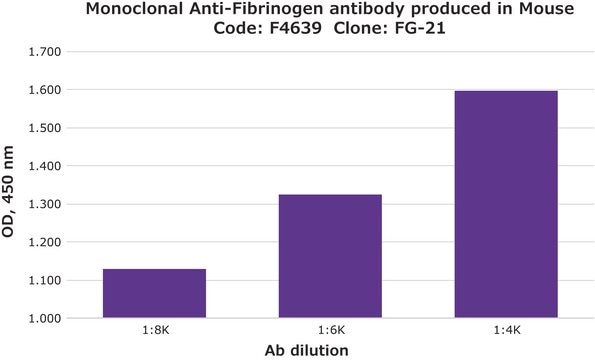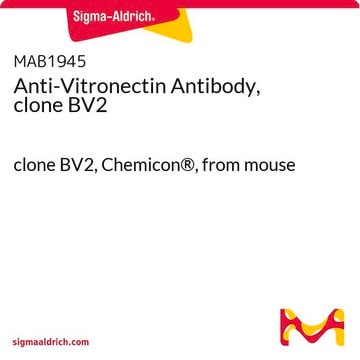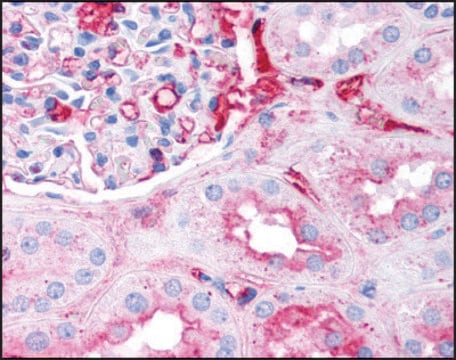F9902
Monoclonal Anti-Fibrinogen antibody produced in mouse
clone 85D4, ascites fluid
Sinónimos:
Anti-Fib2
About This Item
Productos recomendados
biological source
mouse
conjugate
unconjugated
antibody form
ascites fluid
antibody product type
primary antibodies
clone
85D4, monoclonal
contains
15 mM sodium azide
species reactivity
pig, sheep, rabbit, bovine, baboon, human, goat, canine
technique(s)
dot blot: suitable
indirect ELISA: 1:8,000
western blot: suitable
isotype
IgG1
UniProt accession no.
shipped in
dry ice
storage temp.
−20°C
target post-translational modification
unmodified
General description
Specificity
Immunogen
Application
Immunofluorescence (1 paper)
Biochem/physiol Actions
Disclaimer
Not finding the right product?
Try our Herramienta de selección de productos.
Storage Class
10 - Combustible liquids
wgk_germany
nwg
flash_point_f
Not applicable
flash_point_c
Not applicable
Certificados de análisis (COA)
Busque Certificados de análisis (COA) introduciendo el número de lote del producto. Los números de lote se encuentran en la etiqueta del producto después de las palabras «Lot» o «Batch»
¿Ya tiene este producto?
Encuentre la documentación para los productos que ha comprado recientemente en la Biblioteca de documentos.
Nuestro equipo de científicos tiene experiencia en todas las áreas de investigación: Ciencias de la vida, Ciencia de los materiales, Síntesis química, Cromatografía, Analítica y muchas otras.
Póngase en contacto con el Servicio técnico








